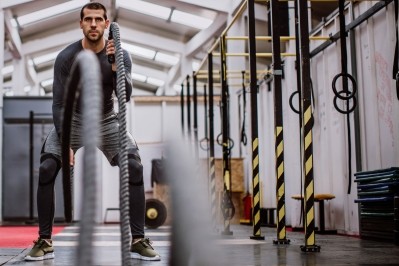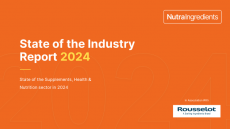APC Microbiome Ireland & KCL ink €1.2m study of exercise role in gut and brain health

The study, which counts King's College London and the SFI Research Centre at University College Cork (UCC), as partners, will focus on a specific gut-to-brain pathway, which may offer future individualised intervention for age-related changes in cognition and mood.
“The gut microbiota is particularly responsive to lifestyle influences,” explains Yvonne Nolan, Professor in Anatomy and Neuroscience and Funded Investigator in APC Microbiome Ireland.
“Our research will delve into how it regulates the interaction between exercise and the brain to control the ageing process.”
Plugging knowledge gaps
The project, which received the funding from The Reta Lila Weston Trust as part of their Brain Health and Microbiome programme, will also look to boost understanding of how the microbiome influences physiology, health and disease, and help harness this knowledge to develop new treatments.
Along with research expertise and state-of-the-art technologies in gut microbiota, the multidisciplinary collaboration will also use metabolomics, exercise-based clinical trials, stem cells and neuroplasticity, ageing biology and behaviour.
The ultimate aim is to plug the major gap in knowledge concerning specific mechanisms underlying cognitive impairment in middle-age, and how modulating factors such as exercise could attenuate them.
“We have known in rodent models that exercise increase the production of new neurons and demonstrated in human that exercise slowdowns cognitive ageing, while the gut microbiota can also be affected,” comments Sandrine Thuret, Project Lead and Professor of Neuroscience at King’s College London.
“With this project we want to put the puzzle together at the cellular and molecular level.”
Hippocampus role
A specific brain region that the project will look to home in on is the hippocampus that plays a role in cognition and mood and is vulnerable to gut-mediated and metabolic changes.
It is capable of generating new neurons from neural stem cells throughout life in a process of neuroplasticity called adult hippocampal neurogenesis (AHN).
AHN decreases with age, however it has been shown that exercise can enhance AHN and lessens deficits in AHN in aging brain.
The composition of the gut microbiota and their by-products in middle-age may predict decreased AHN, and the brain’s reduced ability to discern experiences and form distinct memories.
However, these reductions may response positively to modifiable lifestyle factors such as exercise.
“Cognitive decline that accompanies ageing is one of the great health challenges of our time, and it is imperative that we learn all we can about the potential of exercise to modify the microbiome and help maintain cognition,” says Galvin Weston, Chair of the Reta Lila Weston Trust.
“We are pleased to support this team in their bid to unravel the connections between lifestyle, the microbiome and brain health.”
Professor John Cryan, Principal Investigator in the APC Microbiome Institute and Professor & Chair, Dept. of Anatomy & Neuroscience at UCC, adds, “Recent provocative work from APC Microbiome Ireland has emphasised the role of the gut microbiome in driving ageing processes in the brain.
“Current funding will dig deeper into the exact mechanisms and how exercise may attenuate them.”
Mouse models
In September, Professor Cryan led a number of researchers in investigating a novel approach to reverse aspects of ageing-related deterioration in the brain and cognitive function via the microbes in the gut.
Published in Nature Aging, the team looked to have established that the microbiome can be harnessed to reverse age-related brain deterioration.
The work involved faecal microbiota transplantation from either young (3–4 months) or old (19–20 months) donor mice into aged recipient mice (19–20 months).
Along with colleagues from the Teagasc Food Research Centre in Cork, Ireland, the team found the transplant of a microbiota from young donors reversed ageing-associated differences in peripheral and brain immunity, as well as the hippocampal metabolome and transcriptome of ageing recipient mice.
Additionally, the young donor-derived microbiota attenuated selective age-associated impairments in cognitive behaviour when transplanted into an aged host.















